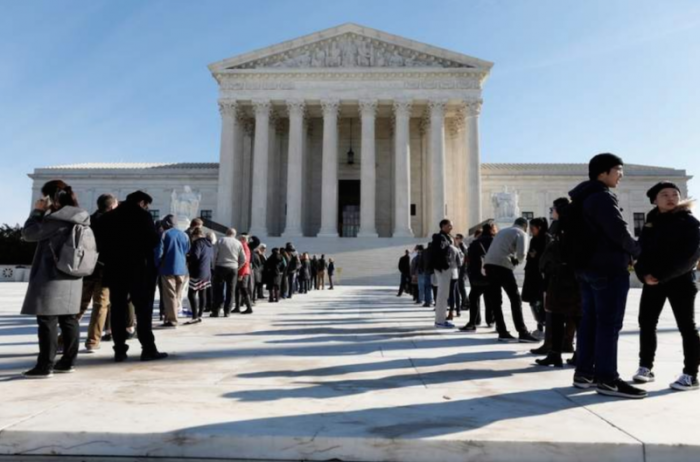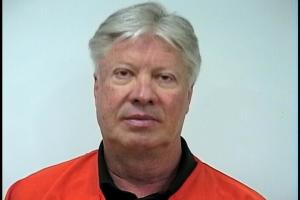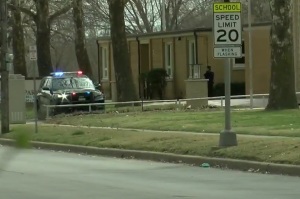Evangelicals, diverse religious bodies ask Supreme Court to hear contractor's religious freedom case

The Southern Baptist Convention's Ethics & Religious Liberty Convention has teamed up with a group of religious denominations and bodies to urge the U.S. Supreme Court to take up a unique religious freedom case that could challenge a controversial 1990 ruling.
The ERLC joined the Seventh-day Adventist General Conference, the Church of God in Christ, the Church of Jesus Christ of Latter-day Saints, the Lutheran Church-Missouri Synod and the Union of Orthodox Jewish Congregations of America in signing onto an amicus brief supporting the case of Idaho man George Ricks.
Ricks, a father of four, is a nondenominational Christian who believes the Bible informs him that it is wrong to use a government universal identification system to participate in employment.
After serving decades in the construction business, Ricks decided in 2014 to become an independent contractor. In order to do so in the state of Idaho, he had to register with the state. In order to register, Ricks was told he needed to submit his social security number.
To avoid violating his religious belief, Ricks refused to provide his social security number but offered other forms of government identification, an accommodation his legal team says is often made for foreign residents who don't have a social security number.
However, the Idaho Board of Contractors refused to grant Ricks the accommodation and also refused to obtain his social security number in ways that don't involve him directly.
The Board of Contractors relied on the 1990 Supreme Court decision in Employment Division v. Smith, a case that dealt with whether Native Americans had the religious freedom right to smoke peyote (an illegal drug) for religious purposes.
The Supreme Court ruled at the time that allowing exceptions to state law or regulations affecting religion would "open the prospect of constitutionally required exemptions from civic obligations of almost every conceivable kind."
Ricks filed a lawsuit in 2016 on grounds that his religious freedom right had been violated. Ricks is represented by the Becket Fund, a Washington-based religious freedom legal nonprofit. Becket argues that the state can't force anyone to choose between practicing their faith and obtaining full-time work.
In March, the Idaho Supreme Court declined to hear Ricks' appeal of a December 2018 ruling against him by a state appellate court.
In July, Becket appealed Ricks' case to the U.S. Supreme Court.
"The decision is contrary to the text and historical meaning of the Free Exercise Clause," the appeal states.
This month, different amicus briefs were filed in support of Ricks that ask the U.S. Supreme Court to take up his case.
The brief signed onto by the six religious bodies argues that the Smith ruling has resulted in minority religious communities struggling to "protect their religious practices from government interference" through the court system.
The brief lists off a number of cases in which religious adherents have been defeated through courts citing the Smith ruling.
Specifically, the brief mentioned a 2018 case involving parents of two students who were prevented from participating in extracurricular school activities because the students didn't abide by the district's grooming policy by not cutting a long braid of hair that represented their faith in God.
"Even though '[t]he policy is only about appearances in representing the school, rather than incorporating any safety concerns,' because the law was neutral and generally applicable, the court found that it did not infringe on the student’s free exercise of religion and granted the school district’s motion for summary judgment as to the free exercise claim," the amicus brief reads.
The brief also adds that the Supreme Court's holding in Smith didn't outline a framework designed to answer all Free Excercise questions. Additionally, the brief contends that the court's rationale in Smith has "proven inadequate to many Free Exercise issues."
"Smith also was arguably intended to apply only to broadly applicable criminal laws," the brief states. "And even where Smith’s framework arguably does apply, recent decisions confirm that Smith did not, and could not, announce a uniform standard for resolving Free Exercise challenges."
The amicus brief cites the Supreme Court's 2017 ruling in the case of Trinity Lutheran Church v. Comer to argue that Smith does not say “any application of a valid and neutral law of general applicability is necessarily constitutional under the Free Exercise Clause."
"Rather, Smith’s framework was a product of the facts that were before the Court," the brief reads. "Its basic requirement — that the challenged law must be 'neutral' and 'generally applicable' — was easy to satisfy: the case concerned religious use of a Schedule I drug with hallucinogenic effects."
Other separate amicus briefs were filed in support or Ricks by the Center for Constitutional Jurisprudence, the Jewish Coalition for Religious Liberty and 10 legal scholars.
The 10 legal scholars, which included law and religion professor John Inazu from Washington University in St. Louis, also contend in their brief that lower courts have had a hard time applying the Smith ruling.
They argue that Smith is "ripe for reconsideration" and Ricks' case "presents an excellent opportunity for the Court to engage in that endeavor."
"Since its announcement, the Court’s decision in Smith has been criticized from every side," the brief filed on behalf of the legal scholars argues. "Smith has faced unequivocal calls for reexamination by many members of the Court in concurring or dissenting opinions; widespread condemnation in the legal academy; attacks from Congress and state legislatures; and contemporary censure by the public."
The brief explained that how far Smith was intended to go in overturning previous court precedent is "not specified in the opinion."
"And this Court’s general reluctance to fully embrace Smith in subsequent free exercise cases has further confused matters," the brief explains.
Follow Samuel Smith on Twitter: @IamSamSmith
or Facebook: SamuelSmithCP





























